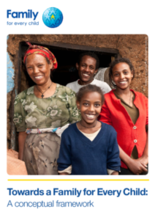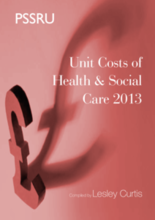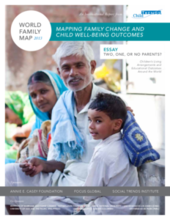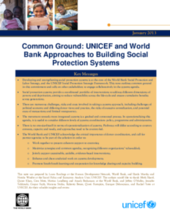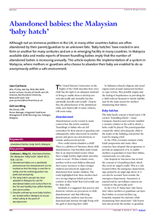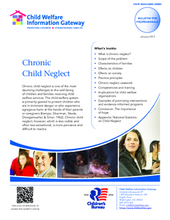Displaying 1281 - 1290 of 1798
This document provides a conceptual framework for Family for Every Child, a global network of national civil society organisations working to mobilise knowledge, skills and resources to build a world where every child grows up in a permanent, safe and caring family, and to provide quality alternative care where needed.
This report is a compilation of health and social care costs in the UK for the year 2013, including an article and corresponding information on the costs of residential care for children.
The article reviews the historical development of out-of-home care in Italy and Spain and compares foster family and residential care, as well as the main research contributions to these topics in both countries.
This document present the law on the special protection of children in need at risk and children separated from their parents for Moldova.
The USA-based National Child Traumatic Stress Network has recently released a second edition of the Child Welfare Trauma Training Toolkit, which is part of the Child Welfare Trauma Training course. The course assists those in the field of child welfare who wish to learn more about child welfare and trauma.
The World Family Map Project is a new initiative by Child Trends to monitor the health of family life around the globe and to learn more about how family trends affect the well-being of children. Using internationally comparative data for low-, middle-, and high-income countries on key characteristics of families, including family structure, family socioeconomics, family processes, and family culture, the Map looks at trends in 45 countries, representing every region of the world.
This brief outlines the common ground between the World Bank and UNICEF in their commitment in developing and strengthening social protection systems and calls on other stakeholders to engage collaboratively to build such systems and expand their coverage.
This article explores the implementation of a system in Malaysia, where mothers or guardians who choose to abandon their baby are enabled to do so anonymously within a safe environment.
This article focuses on the structural similarities and dissimilarities that exist between child protection systems in France and Switzerland, as exemplified by the evolutions of the last decade.
This Child Welfare Information Gateway bulletin for professionals in the US discusses what chronic neglect is and reviews ways to work with families experiencing chronic neglect, including critical elements of successful casework practice, examples of what agencies are doing, and ways agencies can integrate child welfare approaches to chronic neglect with prevention and early intervention efforts.

